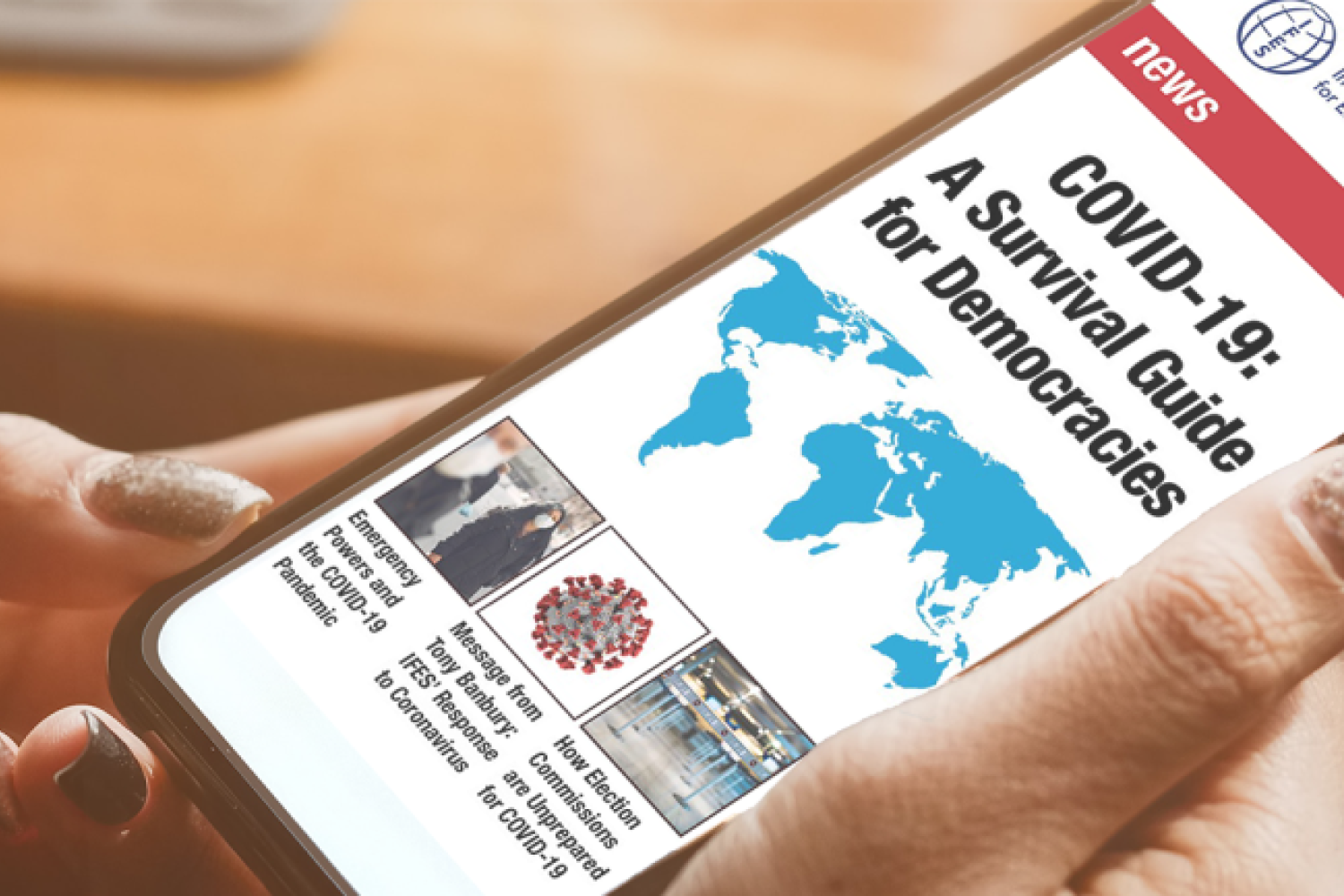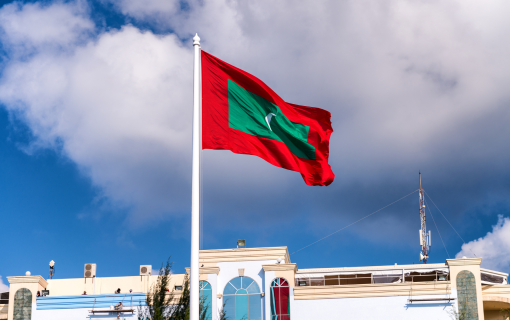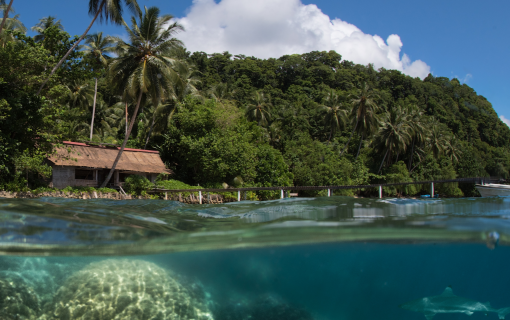
Elections to Watch in 2021
In the year ahead, the COVID-19 pandemic will continue to shape elections. Even as vaccines and better treatments become more available, election organizers will need to adapt electoral processes and voting to prioritize the health of participants and guard against further spread of the coronavirus.
The pandemic’s painful social and economic impacts will be at the center of the politics surrounding this year’s elections. The World Bank has estimated a global economic output in 2021 will be 5 percent below pre-pandemic projections at 4 percent. Many countries will continue to experience steep recessions and a subdued recovery for many months to come.
Within this evolving public health crisis and the economic uncertainty that it has wrought, we will witness several consequential elections around the globe in the months ahead. From Africa and Latin America, where a number of significant electoral contests will be waged, to Asia, Europe and the Middle East, voters will exercise their fundamental right to have a voice in by whom and how they are governed.
Below are the elections to watch in 2021:
Africa
Ethiopia*
General Elections – June 5
Legislative elections that were expected in 2020, but postponed due to COVID-19, will take place against the backdrop of an internal conflict in the Tigray region. Elections are planned for June 5 for 509 seats in the lower house of the legislature. (The house has 547 total seats, but elections will not be held in the Tigray region until the state of emergency there is lifted.)¹ Given the ongoing domestic turbulence, and the potential for conflict to spread beyond Tigray, many are wondering if the current vision of national unity and the political transition, initiated just two years ago, can be sustained.
Zambia*
Presidential Election – August 12
With Zambia’s economy shrinking and inflation surging, a presidential election will take place in August. Recent International Monetary Fund negotiations on debt restructuring may shape the tenor and content of the electoral campaign that will likely pit current President Edgar Lungu against opposition leader and businessman Hakainde Hichilema, among other candidates. Zambians are bracing for a close race and hoping to avoid the violence that plagued a tight 2016 election.
Americas
Chile
General Elections – November 21
Long one of Latin America’s fastest growing economies, Chile was rocked by riots and violent protests in late 2019 in response to inequality brought on by a lack of sustainable growth, poor job creation and demands for political change. General elections take place on November 21 just one year following a plebiscite in which Chileans voted overwhelmingly in favor of replacing the country’s 40-year-old, Pinochet-era constitution. Constitutional reform and calls for economic justice will be central in the electoral campaign.
Honduras*
General Elections – November
Following highly contested elections in 2017, the ruling National Party, led by President Juan Orlando Hernandez, has solidified its grip on power even as it weathers persistent allegations of corruption. With a contracting economy exacerbated by two devastating hurricanes, Hondurans go to the polls in November to elect a president, vice president, 128 deputies of the National Congress and local offices and representatives to the Central American Parliament.
Mexico
Legislative Elections – June 6
In what promises to be the largest single-day election in its history, Mexico elects the entire lower house of the legislature as well as numerous governors, state legislatures and mayors. With President Manuel Lopez Obrador not appearing on the ballot on June 6, opposition parties are uniting to support consolidated candidates in the majority of the country’s 31 states. The ruling Morena party’s defense of its majority hold on both houses of Congress will be hard fought.
Nicaragua*
Presidential Election – November 7
Presidential elections are scheduled for November 7 and long-time President Daniel Ortega, who dodged term limits to be elected in 2016, is expected to run again. The ruling party dominating Congress has recently passed legislation widely viewed as seeking to limit political opposition. Should the alliance of two major opposition movements be allowed to compete, many are questioning if Ortega and his Sandanista party can hold on.
Asia-Pacific
Japan
Parliamentary Elections – to be announced
The sudden departure in September 2020 of Shinzo Abe, Japan’s longest-serving prime minister, has ushered in a period of uncertainly for the ruling Liberal Democratic Party. The opposition remains weak, and yet will seek to capitalize on the current administration’s COVID-19 response and an anemic economy. According to the constitution, elections must take place before October 22, though some observers expect them even sooner.
Nepal*
Parliamentary Elections – April 30 and May 10 (canceled²)
The dissolution of the Nepali Parliament late last year paved the way for early parliamentary elections on April 30 and May 10. Current Prime Minister KP Sharma Oli and his Nepal Communist Party’s open feud with the party of former Maoist rebels, groups that had united three years ago as the Left Alliance to achieve an historic electoral victory, but have since become divided due to disagreements over power-sharing and policymaking. On February 23, 2021, the Nepali Supreme Court ruled the dissolution of Parliament was unconstitutional and called for the Parliament to be reinstated within two weeks, negating the need for fresh parliamentary elections in 2021.
Europe and Eurasia
Germany
Parliamentary Elections – September 26
After four terms in office, Chancellor Angela Merkel will not stand in federal elections planned for September 26. The Christian Democratic Party remains popular, yet Merkel’s departure creates some uncertainty ahead of the vote. The European Union’s largest economy has contracted over the past year, creating a challenging electoral climate that some speculate may result in a new ruling coalition.
Kyrgyzstan*
Parliamentary Elections – June
Violent protests following the October 2020 parliamentary elections precipitated the departure of Sooronbai Jeenbekov, the third Kyrgyzstani president to be driven from office in the country’s young democratic history, and the annulment of the legislative elections. Amid such political and social upheaval, Central Asia’s most vibrant, though fledgling, democracy will hold parliamentary elections in June, having held a snap presidential election on January 10. The future democratic path of the country remains in the balance.
Russia
Parliamentary Elections – September 19
The ruling United Russia Party currently holds 380 of the State Duma’s 450 seats. Even amid a severe economic downturn and one of worst COVID-19 outbreaks in the world, United Russia is poised to maintain its grip on power. Elections are scheduled to take place by September and the campaign will likely feature efforts to silence opposition activists including Alexi Navalny, whose recent arrest on January 17 sparked nationwide protests. An unlevel playing field almost guarantees the continued lack of a meaningful opposition in the national legislature.
Middle East and North Africa
Iran
Presidential Election – June 18
Presidential elections are planned for June 18; a final set of candidates vetted by the Guardian Council is expected in May, and President Hassan Rouhani is term limited. A highly challenging economic situation including rampant inflation and high unemployment will compete with Iran’s turbulent role in regional affairs for the voters’ attention.
Iraq*
Parliamentary Elections – June 6
Protests against corruption and government mismanagement that began in October 2019 have heightened political instability and led to a call for early elections. Prime Minister Mustafa al-Kadhimi has called for parliamentary elections this June, one year earlier than expected. Parliament has also reformed the electoral law to limit the power of the political establishment and depoliticize the election management body. Many hope that elections can put the country on the road to greater stability and democracy.
*IFES project countries
Written by Michael Svetlik, IFES vice president of programs.
Published on January 26, 2021.
¹ Updated on April 12, 2021.
² Updated on February 24, 2021.










